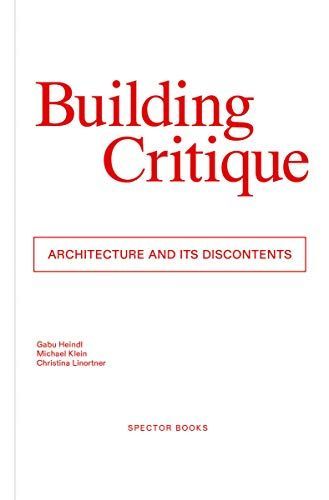
Building Critique Architecture and Its Discontents
For much of the 20th century, critique played an important part in what was considered "modern" architecture; the canon of modern architecture considered itself dedicated to both formal progress and social critique. But as the 1960s spurred a rereading of modern architecture from a perspective informed by Marxism and the decade's new social movements, many concluded that a building practice could not be critical, owing to its interdependent relationship with power and business. With recent economic crises hitting the building and property sectors, and research playing an increasingly large role in architectural practice, we are witnessing a renewed interest in critique in contemporary architecture, especially from postcolonial and feminist positions. The essays contained in this book, authored by a variety of international architects and thinkers, address this revived moment of critique, arguing that, far from being dead, architectural critique is now indispensable.